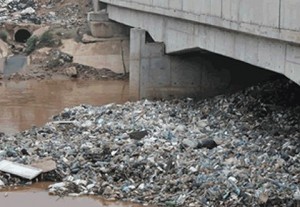Ghana needs $160m yearly to fight poor sanitation
 Ghana would have to invest $160 million every year into sanitation for nearly two decades to be able to meet the Sustainable Development Goals (SDGs) of achieving adequate and equitable access to potable water and improved hygiene.
Ghana would have to invest $160 million every year into sanitation for nearly two decades to be able to meet the Sustainable Development Goals (SDGs) of achieving adequate and equitable access to potable water and improved hygiene.
Much of the huge investment would have to sink in deepening public engagement and education, awareness creation and advocacy geared towards changing people’s attitude in the way the environment is treated.
United Nations Development Programme (UNDP) Communication Analyst, Bossman Owusu told the Ghana News Agency that Ghana missed the Millennium Development Goals (MDG) miserably but said the SDGs provided another chance for the West African to redeem itself.
He was speaking on the sidelines of a training session for journalists on mainstreaming SDGs in development reporting in Ghana.
The session was organised by Media Foundation for West Africa and the United Nations Communication group between August 23 and August 24.
“Some conservative figures have indicated that for Ghana to achieve the SDGs or targets on sanitation it will have to be investing average of about $160 million every year for the next 15 years,” Owusu said.
“What that means is that we need to intensify efforts at improving upon the provision of clean quality water for drinking and also the provision of sanitation.”
“This is where the need for the investment of $160 million a year can be very challenging especially for a country like Ghana that has a lot of development issues to tackle, but through good partnerships between the private and public sectors Ghana will be able to make a lot of progress.
“Under the MDG we did not achieve enough, in fact, sanitation was one of the targets we failed miserably but the SDGs give us another opportunity to improve upon what we did.
“That will mean that we need more investment, we need a lot more awareness and advocacy because when it comes to sanitation we know that the public places an interest in its attainment or not.
“We need to deepen the engagement with the public so that we change our attitude of the way we treat the environment.”
According to the MDGs report on Ghana, the proportion of people with access to improved basic sanitation increased from four per cent in 1993 to 12.4 per cent in 2008 which was far from the 52 per cent target in 2015.
Currently, access to improved sanitation in the country is only 15 per cent, while 58 per cent of the population share latrines and 19 per cent engage in open defaecation.
About three million people lack access to safe water, 23 million lack access to improved sanitation.
Poor sanitation, water and hygiene pose serious repercussions on the people, with children, particularly girls, being denied of their right to education because their schools lack private and decent sanitation facilities.
Women are forced to spend large parts of their day fetching water while poor farmers and wage earners are less productive due to sanitation related illnesses.
Government interventions and projects in low income communities such as microfinance approach for household toilets appeared to have not made the desired impact due to poor urban planning and weak law enforcement, the Report noted.
Source: GNA
